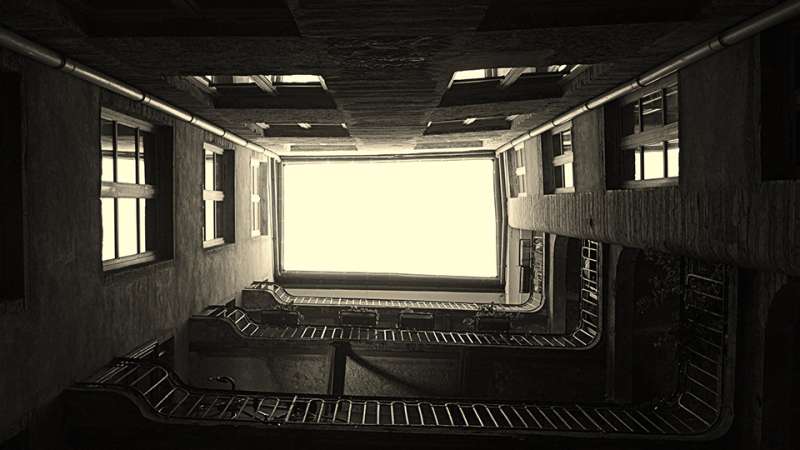Guidelines on minimising Legionnaires' risk are failing to safeguard ageing population, research finds

Global guidelines aimed at minimising the risk of contracting Legionnaires' disease are inadequate for safeguarding the health of our ageing population, new research from Brunel University London concludes.
Dr Edwin Routledge and colleagues say that people living in standard blocks of flats (as opposed to hospitals or care homes for the elderly which house residents most at risk from Legionella pneumophila) are neglected when it comes to monitoring and protecting against the water-borne bacteria, even though one in five residents are in high-risk categories.
Writing in Environmental Technology Reviews, the research team have critically assessed the codes of practice on Legionnaires' risk issued by the World Health Organisation, UK Health and Safety Executive (HSE) and the European Centre for Disease Prevention and Control.
Guidelines should cover standard residencies as well as care homes
Major contributing factors in susceptibility are a weakened immune system, being male, over the age of 45, and suffering from an existing illness such as respiratory problems, kidney disease, diabetes or cancer. Around 10-15% of all reported cases of Legionnaires' disease result in a fatality.
Approximately 400,000 people in the UK over the age of 65 live in nursing homes or residential homes for older residents, but millions live in standard, mixed, non-healthcare blocks of flats with shared hot and cold water pipes which are just as likely to house dangerous bacteria.
Brunel's researchers surveyed the residents of twenty standard building complexes in a variety of London boroughs, varying in size from 65 flats to 645. Some 18%, or almost 1 in 5, residents were over the age of 65 and most suffered from at least one condition that is associated with greater susceptibility to Legionnaires' Disease.
Unlike healthcare residencies, mixed residential buildings are not subject to WHO or HSE guidelines on what levels of Legionella present in the water system should result in further remedial action or intervention. European guidelines, however, do recommend remedial action at a certain level, regardless of the type of property.
"Our ageing population tend to prefer shared dwellings over detached or semi-detached houses due to increased security and a variety of communal facilities that they can enjoy without the responsibility for maintenance. They may choose to downsize from a family home, and of course, in a city like London, the cost of renting or buying a house is also increasingly prohibitive," says Dr Routledge.
"The burden of age-related diseases in society is increasing. By 2035 we can expect more than six million people in the UK aged 65 and above, with long standing serious illness, living in residential homes. But your typical block of flats is currently not considered to be 'high risk'. Based on the percentage of elderly and vulnerable residents living in them, we believe they should be."
Testing methods are not reliable enough
Disparities in current sampling technique and detection methods for Legionella have also raised concerns about the reliability of measures to safeguard public health, the authors also say.
Research in 2014 by Whiley and Taylor saw almost 4,000 environmental samples analysed for Legionella, with 34% of samples testing positive when 'culture methods' were used but 72% testing positive when using a quantitative polymerase chain reaction (qPCR) method.
Neither technique is perfect, say the Brunel research team - the former method is likely to underestimate the presence of Legionella, while the latter can overestimate the concentration of live bacteria present.
Figures quoted in the Brunel report also suggest a possible link to global warming - an increase in Legionnaires' cases has been recorded during exceptionally warm or wet weather as conditions become more favourable for the survival and replication of Legionella.
The report recommends:
- Measures to protect the susceptible population of residents in non-healthcare premises should be re-examined
- There should be greater harmonisation of Legionella standards in both health and non-healthcare premises
- The proportion of residents over 65 occupying a building should be included as a risk factor in routine risk management strategies
- New rapid test methods for Legionella should be developed
- The potential impact of global warming on the risk of exposure to Legionella and its consequences should be investigated.
More information: 'Barriers to Effective Legionella Control in a Changing World – A Practitioners View' by Mr Aji Peter, Professor Clive Thompson and Dr Edwin Routledge was published online in Environmental Technology Reviews on 12th June 2017, dx.doi.org/10.1080/21622515.2017.1335352


















